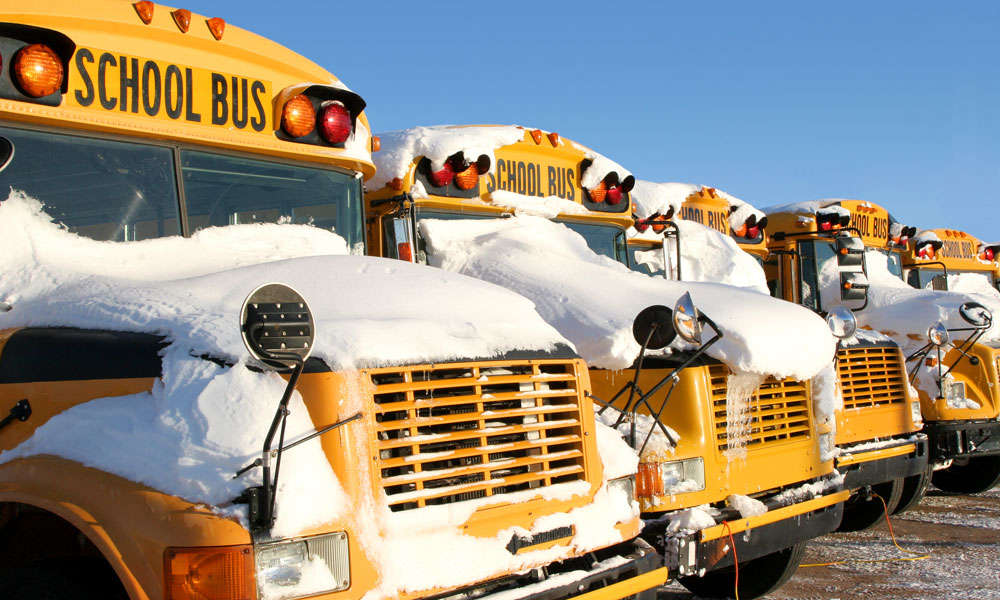
Wild Weather Means Tough Calls for School Superintendents
Many factors go into a school superintendent’s decision to cancel school because of bad weather or some other event. Their national association is working to provide information and tactics to help them weather this brutal winter.
Polar vortexes and arctic blasts and Alberta clippers, oh my!
This winter has been one of the coldest and snowiest in recent memory, and last week’s storm was particularly rough on the heavily populated Northeast. With nearly two months of winter still ahead, school superintendents are already running out of the built-in snow days on their schools’ calendars.
Making the call—Will schools be open or closed?—is one of a superintendent’s trickiest duties, as it’s almost impossible to please everyone. Standards for closing vary widely, said Edgar Hatrick, a past president of AASA: The School Superintendents Association and current superintendent of the Loudoun County School District in Virginia. “Superintendents in the upper Midwest, from Michigan to Wisconsin, they’ll never close because of snow like we do down here, because they live with it all winter long. They’ll close because [the temperature] gets to be 35 below.”
When classes are canceled or the start of the school day is delayed, superintendents and parents worry about the impact that those lost hours have on the students’ education. Last week, for example, several school districts on the East Coast—including Loudoun County—were forced to cancel midterm exams. A recent study by an assistant professor at Harvard University, however, found that snow days have little to no impact, while keeping school open during a weather event can have negative effects.
“Anecdotally, I would agree with that assessment,” said Hatrick, who has canceled eight days of school this year because of snow and cold temperatures. “If 20 percent of the kids are missing because you stayed open or had a delay, it’s hard for instruction to go on. Teachers find ways to make up for the time that is missed. My guess is sometimes that happens at the expense at some of the fun activities that they may have planned, because they have to make sure they cover the core concepts they have to teach.”
Teachers are finding ways to adapt. In Loudon County, they’ve turned to online chatrooms like Google Hangouts, which Hatrick said has allowed students to continue to receive instruction even when school is closed for a snow day. It’s an idea being shared within the AASA community.
Hatrick said AASA also serves as a “clearinghouse for superintendents” responding to natural disasters like last year’s tornado in Moore, Oklahoma, which destroyed an elementary school.
“That’s when the national association often steps in with support from around the country,” he said. “They’ll serve as the channel point for alerting our members all over the country of a need, and sometimes that need can be met by sharing excess supplies and sharing furniture that would’ve gone to auction but now will be shipped to a school that really needs it.”
(iStock/Thinkstock)






Comments